Global power shift? Northeastern experts weigh in on China’s future in the world economy
“We’ll see both the U.S. and China having about 22%-23% of the world economy,” Michael Enright said at a discussion featuring Northeastern experts.
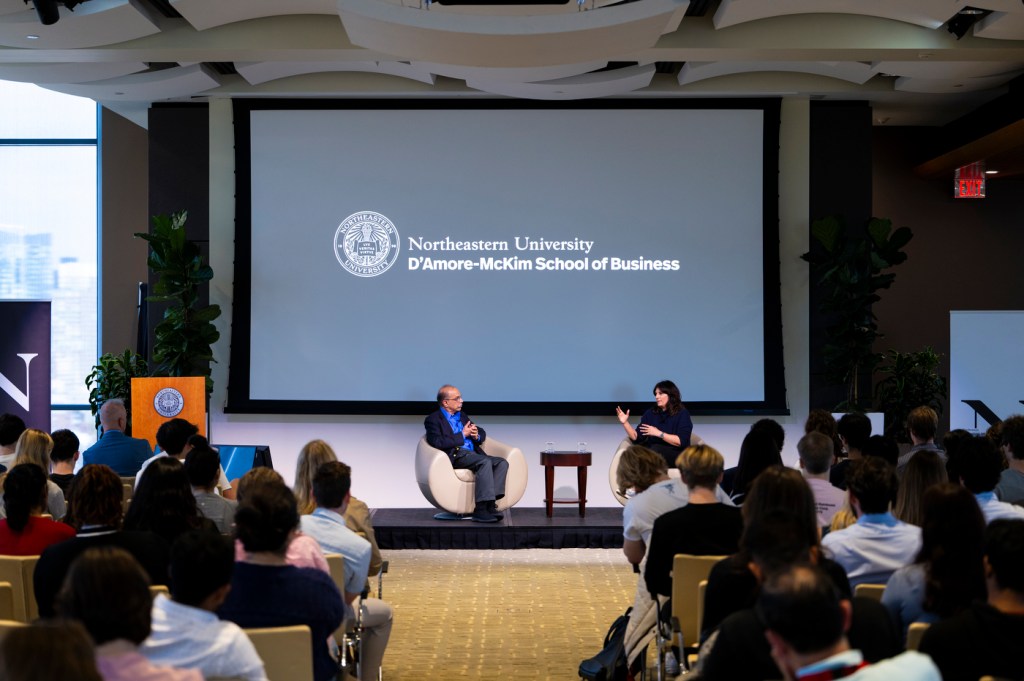
Western Europe is being surpassed by China — but that doesn’t mean China is destined to dominate the global economy, said Michael Enright, the Pierre Choueiri Family Professor in Global Business at Northeastern University.
“If the projections that my group is doing come true, we’ll see both the U.S. and China having about 22%-23% of the world economy,” Enright said at a discussion of the global economy featuring Northeastern experts at East Village on the Boston campus Wednesday.
Gone are the days when the U.S. and Western Europe dominated 50% or more of the global economy and “could pretty much set the rules of the game for international trade and investment,” Enright said.
He acknowledged the future is difficult to predict.
“We don’t know if we’re going to have a unified investment and trade regime under a rules-based system, or a fragmented, chaotic, might-makes-right system,” Enright said. “The U.S. and China will be the most important players, but it’s the decisions of the EU, India and some of the other countries that may actually kick the balance one way or another.”
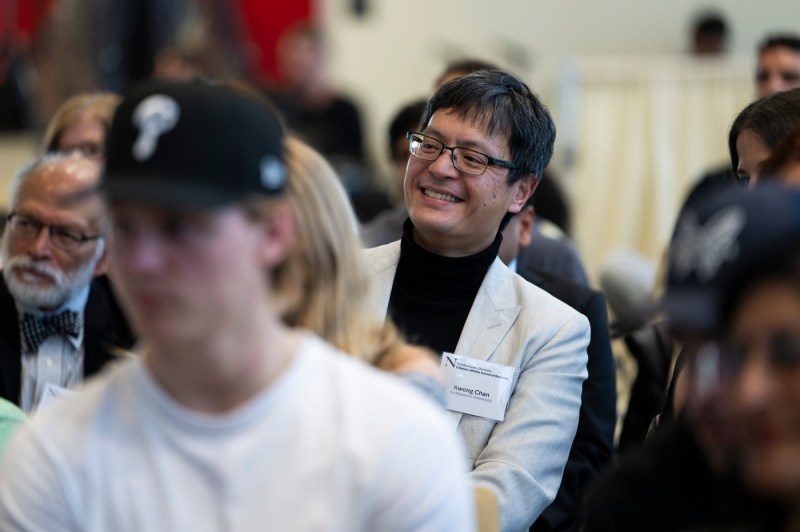
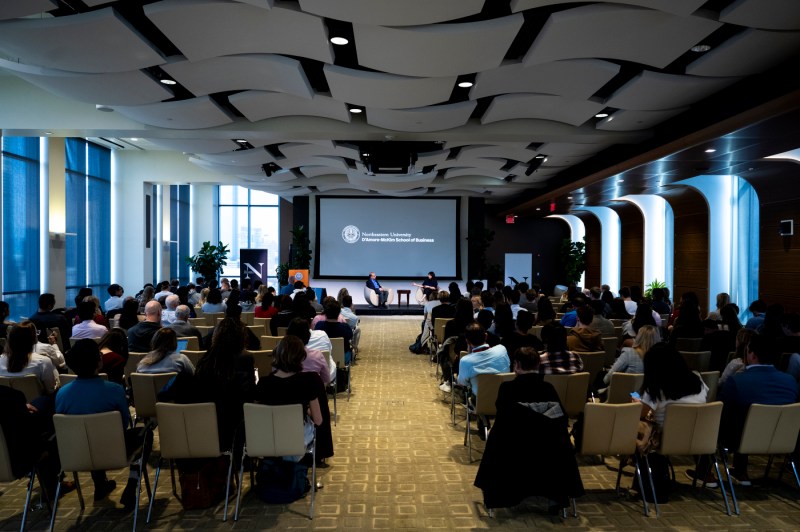
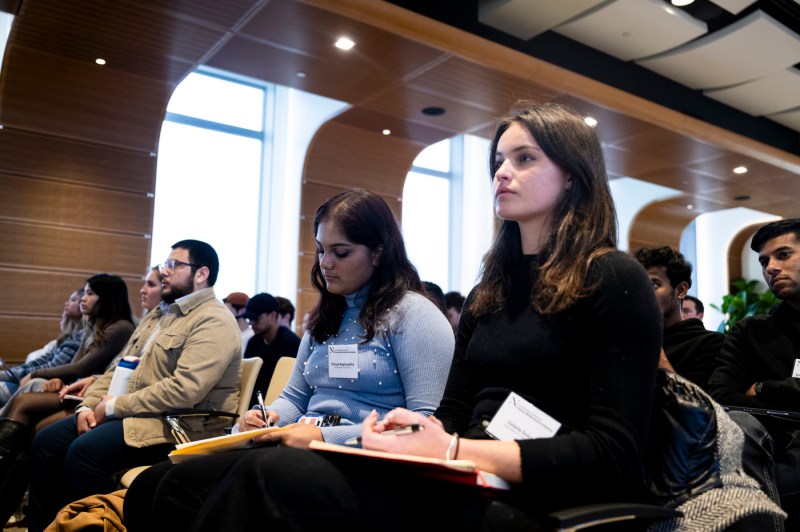
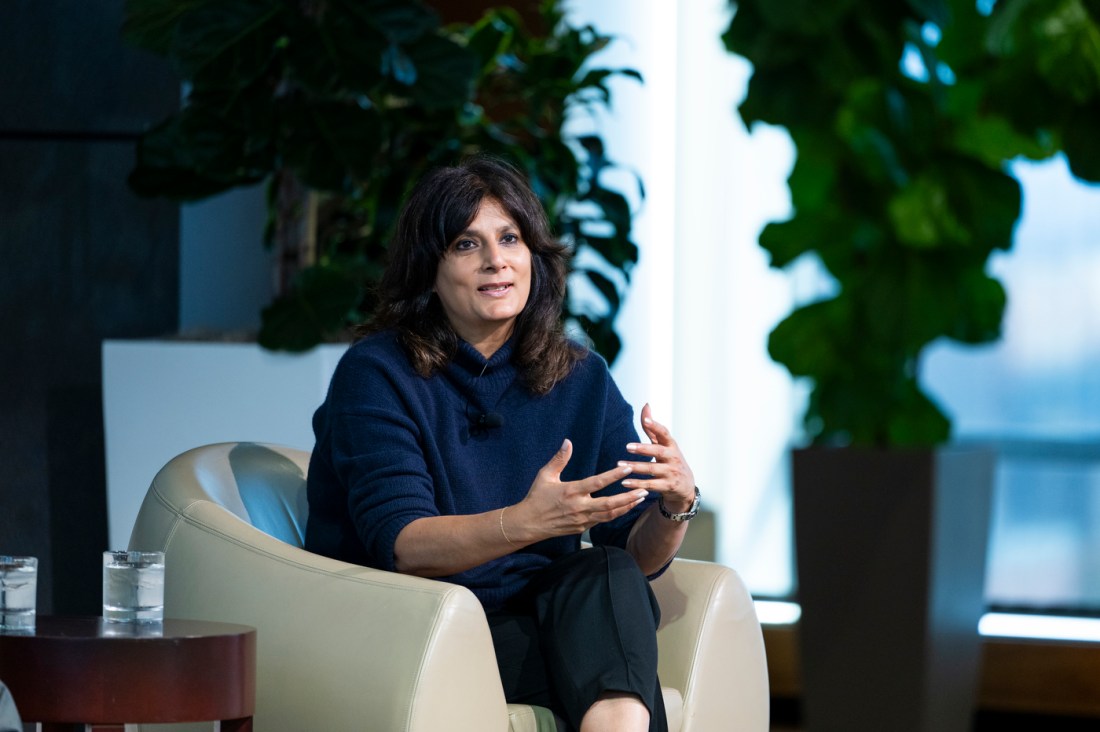
China is ascending in spite of structural problems, Enright said.
“China’s economy is slow,” he said. “It’s a property bubble that’s deflating. The population of working-age people is now declining. The impact of COVID is still rippling through the economy. Economic nationalism is growing. East-West tensions are growing and China’s own priorities are shifting from headline economic growth to greater technological self sufficiency.
“While China may become the world’s largest economy,” Enright said, “the current trends suggest that China is not going to become the dominant economy that a number of analysts were projecting just a few years ago.”
Joining the Northeastern experts at the wide-ranging event, “Beyond Boundaries: Exploring the Future of Global Business,” were Devika Bulchandani, global CEO of the international advertising, PR and consulting firm Ogilvy; and David Vitti, vice president and chief procurement officer for Bose.
Though Vitti agreed with Enright that the Chinese market is “soft,” he added that “it’s a great time to do business in China.”
“I went back for the first time after COVID,” said Vitti, who had previously visited China three to four times per year. “And I was extremely impressed with all the infrastructure investments they’ve made. They were very busy during COVID. They were investing in automation. They were investing in AI. Their universities are far superior [to those in] some Southeast Asian countries.”
The global economy is experiencing an inflection point, said Ravi Ramamurti, founder and director of Northeastern’s Center for Emerging Markets and university distinguished professor for international business and strategy. He predicted that population growth globally may slow to a 25% increase over the next 50 years and that governments will be increasingly protective of their national economies.
“There’s already signs of that having started to happen and that creates enormous uncertainties for what the future might be like,” said Ramamurti, anticipating a fragmentation of the global marketplace. “We’re entering a period that some people call the multi-polar world and it’s going to be different from anything we’ve seen before.”
Featured Posts
Competition will rise as more countries become increasingly active in the global economy, said Samina Karim, a Northeastern professor and group chair for entrepreneurship and innovation.
“Not only are you facing the competition from those markets, but you’re also facing market share that you want to capture in those markets,” said Karim, adding that geopolitical tensions will further complicate business relationships. “If firms face greater uncertainty and risk due to these political tensions, then we can expect less foreign direct investment in certain parts of the world and countries potentially blocking cross-border acquisitions.”
The changing perspectives are inspiring a search for currency alternatives to the U.S. dollar, said Fabricius Somogyi, a Northeastern assistant professor of finance. One possibility could be a greater reliance on the Euro, based on its large financial sector.
“What’s the other alternative?” Somogyi said. “We could look at developing economies — and in particular China. The tricky part there is precisely the policies that are fostering the Chinese economy, that are bolstering it, that are protecting it from spillover effects from U.S. monetary policy, are also the ones that are preventing it from becoming a real contestant of the U.S. dollar as a dominant currency.”
Yet another option could arise from cryptocurrencies that are not tied to governments, said Ravi Sarathy, a Northeastern professor of international business and strategy. At the same time, he added, governments have insisted that they want to maintain control of their money supply and monetary policy.
“What is the backbone of all of this globalization?” Sarathy said. “I think the heart of this is networks.”
Amid the digital innovations that are transforming the global economy, one thing remains constant, Bulchandani said.
“What has not changed is human motivations,” she said.
That revelation was affirmed by her inspiring story of growing up in India with dreams of fulfilling herself at the highest level. Bulchandani became the first woman of color to run a global agency network while helping to lead the transition of advertising from traditional media to social media.
In this fascinating and frightening era of global change, Bulchandani offered a timeless formula for success.
“There are two things not up for debate: the pursuit of greatness and doing it for goodness,” she said. “That’s our vision. That’s our mission.”











